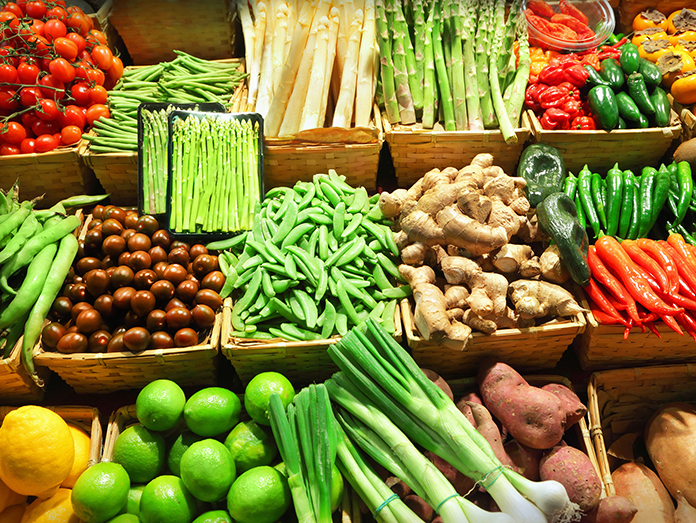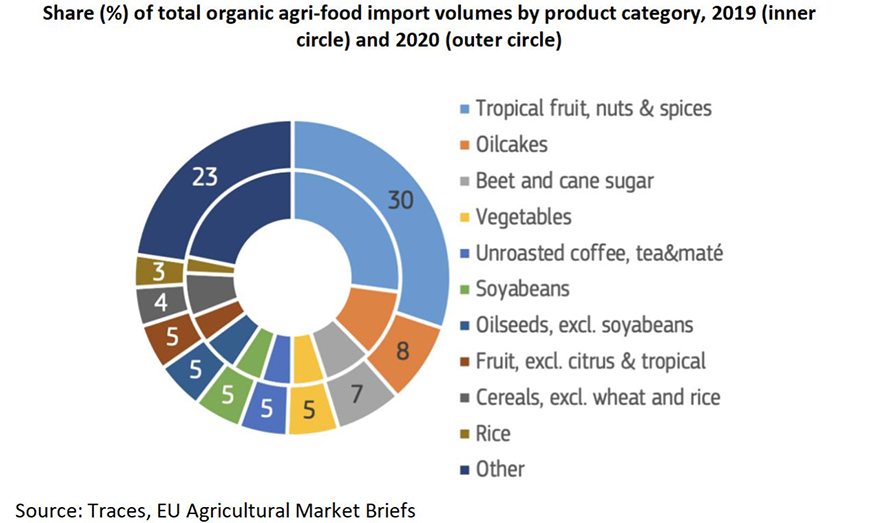While the growth of the EU market for organic agri-food products persisted, imports of such products decreased slightly between 2019 and 2020. Namely, imports of organic tropical fruit and rice was more than outweighed by lower imports of other cereals, oilcakes, and sugar. Changes were also observed in the ranking of the main trading partners, with China and Ukraine losing their top spots to Ecuador and the Dominican Republic. The main importing EU Member States in 2020 were the Netherlands, Germany and Belgium.
1.9% decline in 2020
In 2020, the EU imported 2.79 million tons of organic agri-food products, a decline of 1.9% compared to the 2.85 million tons imported the previous year. Commodities (which include cereals, vegetable oils and oilseeds, sugars, milk powders and butter, unroasted coffee and cocoa) represented 48% of 2020 imports in terms of volume and 29% in terms of value. As for other primary products (including meat products, fruit, vegetables, milk yoghurt and honey), they accounted for 42% of imports in terms of volume and 53% in terms of value.
In terms of destinations, the largest volume of organic products still enters the EU through the Netherlands, with 31% of imports. Germany, Belgium and France follow, with respectively 18%, 11% and 10% of organic products imported by those countries into the EU.
The main trading partners regarding imports of organic products in the EU are Ecuador (12%), the the Dominican Republic (9%), China (8%) and Ukraine (8%). The ten largest export countries of organic products to the EU represented 64% of organic imports in 2020.
Regarding product categories, by far the biggest category is tropical fruit, nuts and spices representing 30% of volume or 0.84 million tons, followed by oilcakes (8% or 0.23 million tons), beet and cane sugar (7% or 0.19 million tonnes) and vegetables (5% or 0.15 million tons).




















